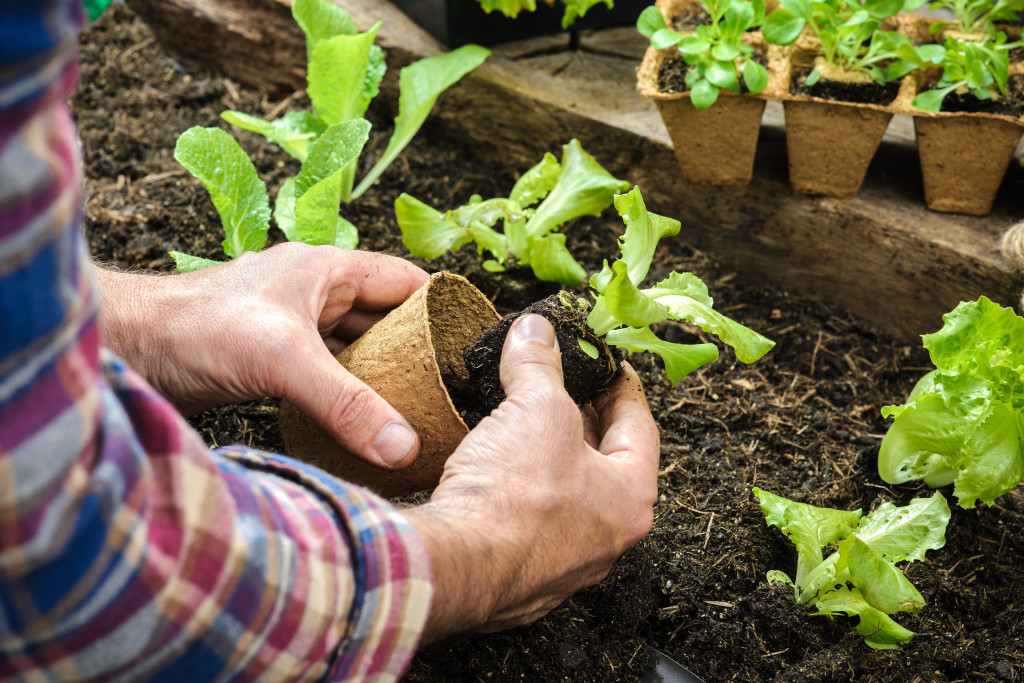- Starting a vegetable garden at home is rewarding and provides fresh produce.
- Choose a location that receives adequate sunlight and is sheltered from strong winds.
- Prepare the soil by removing weeds, testing pH levels, and adding organic matter.
- Choose suitable vegetables for your climate and consider space and time requirements.
- Regular watering, fertilization, and pest control are essential for optimal plant growth.
With the increasing importance of sustainability and healthy living, many people are considering growing their own vegetable garden at home. While starting your own vegetable garden may seem daunting, it is a rewarding and fulfilling experience that can provide fresh and nutritious produce right from your backyard. This blog post will give the best tips for fostering your vegetable garden at home so that you can start your journey toward a healthier and more sustainable lifestyle.
1. Choose the Best Location
The first step in starting your vegetable garden is choosing the correct location. It is essential to choose a spot that receives at least 6 hours of sunlight a day and is easily accessible for watering and maintenance. Your garden should be located in an area sheltered from strong winds and well-drained. This will ensure your plants get enough sunlight, water, and nutrients to thrive.
You should also be prepared for the changing seasons. Some areas will have freezing winters that can damage some plants, so you need to have a plan for keeping your vegetable plants alive. Building a deep winter greenhouse is an excellent solution to keep your plants warm and protected. This will also ensure they get enough sunlight during winter, helping them grow despite the cold.

2. Prepare the Soil
Before planting your seeds or seedlings, preparing the soil in your garden is essential. Start by removing any weeds or rocks, and then add organic matter like compost or manure to help improve the soil’s fertility. It is also recommended to test the pH level of your soil and adjust it as necessary for optimal plant growth. Many vegetables grow best in slightly acidic soil, between 6.0 and 7.0 on the pH scale.
3. Choose the Right Vegetables
When starting your vegetable garden, choosing suitable vegetables for your climate and growing conditions is essential. If you are a beginner, it is recommended to start with easy-to-grow vegetables. It is also necessary to consider each vegetable’s space and time requirements, as some may require more space or a longer growing season. Here are some tips to remember:
a. Choose vegetables that you and your family enjoy eating.
Of course, the vegetables you choose for your garden should be the ones you like. This way, you will have a greater incentive to ensure that they are well-maintained, and you will get to enjoy the rewards of your hard work.
b. Start small.
It is best to start with a small garden that you can easily maintain. You can continually expand it as you gain more experience and knowledge.
c. Plant vegetables that are easy to grow.
When you are just starting, choosing vegetables that are easy to maintain and don’t require much care and attention is best. This will give you more time to focus on the other aspects of gardening.
d. Plant in succession.
Don’t plant all the vegetables at once; some may be ready to harvest before others. Planting in succession allows you to get a continuous harvest throughout the season.
4. Water and Fertilize
Regular watering and fertilization are essential for the health and growth of your vegetable garden. Watering your garden deeply once or twice a week is recommended, rather than giving it frequent shallow watering. Additionally, adding a natural fertilizer like compost or manure can help provide your plants with the necessary nutrients for optimal growth.

5. Practice Pest Control
Finally, practicing pest control in your vegetable garden protects your plants from harmful insects and diseases. This can include using natural pest deterrents like marigolds or planting companion plants that help repel pests. It is also recommended to regularly inspect your plants for signs of pests and diseases and take action as soon as possible to prevent further damage.
Starting your own vegetable garden at home can seem overwhelming initially, but with the right tips and techniques, it can be a rewarding and enjoyable experience. By following these simple steps, you can start growing healthy and nutritious vegetables in your backyard. Always research the best plants for your climate and conditions, prepare your soil properly, practice organic pest control, and be consistent with water and fertilizer. With the right knowledge and dedication, you can enjoy the fruits of your labor for years to come.
